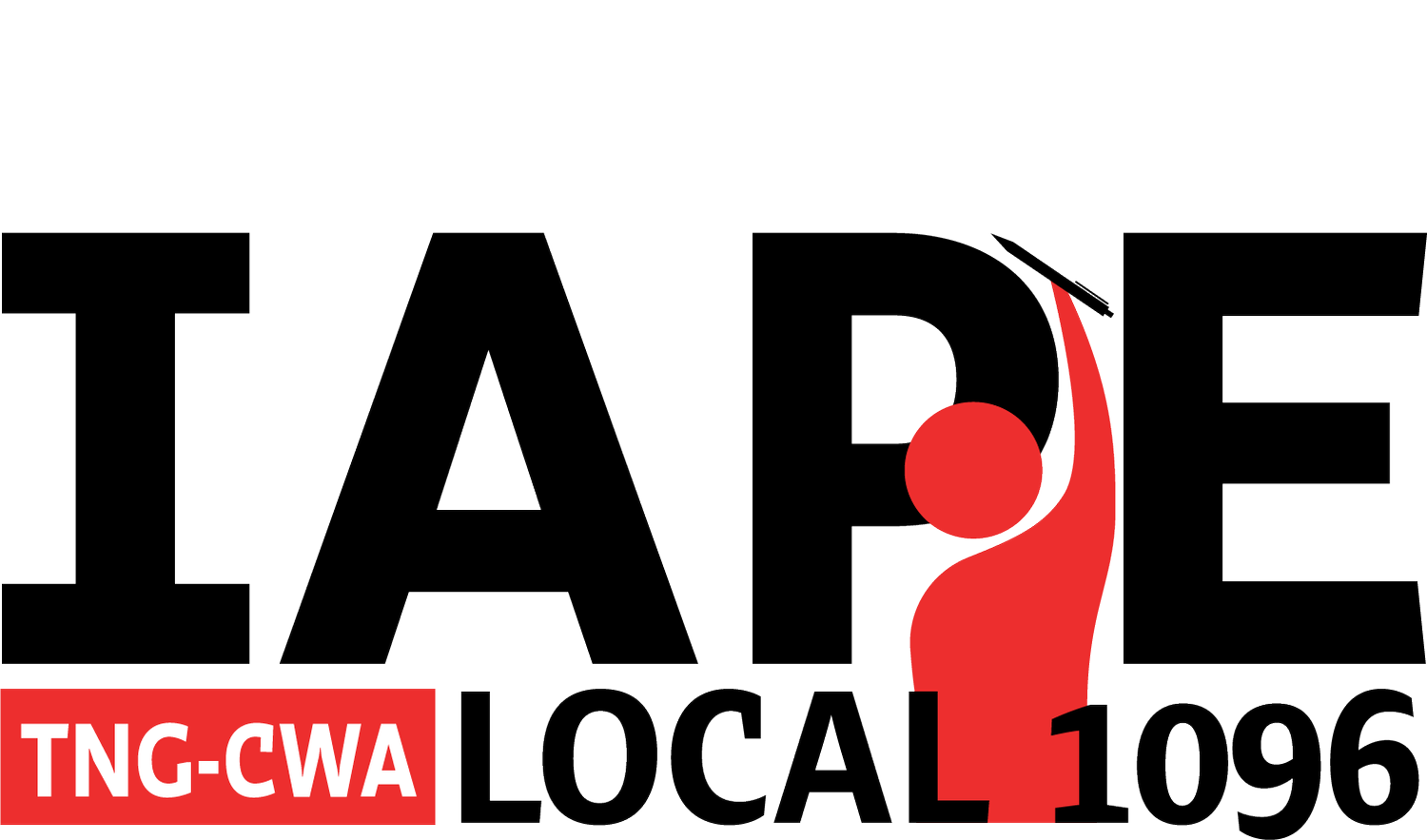Ron Chen — IAPE At 80
Remembering Key People And Events In Our Union's History
As we celebrate the 80th anniversary of IAPE, we'll take an occasional look back at key moments in our Union's history. Today, we remember the 1987 election of IAPE officers and the beginning of Ron Chen's tenure as longest-serving president of our Union.
************************************************************************************************************************
From the IAPE Newsletter, August 1987
RON CHEN'S GOAL: BOLSTER LEADERSHIP
By DAVID WESSEL
IAPE's Top Officers, Circa 1987
Ronald Chen, who beat Eric Frankland by better than 2-to-1 to become IAPE's new president, says his top goal is to bring more members into the union leadership.
"That's the best thing I can leave this union with," he says. "I sense a momentum. Eric had it right when he said he sensed a growing pride in our union."
Mr. Chen, 42, a former grievance committee chairman, says he hopes to recruit active committee chairmen and delegate to them. "What I learned on the grievance committee is that a union isn't built by one person. Dow Jones takes us seriously only if they see that we have the members behind us."
Mr. Chen says he also wants to leverage the union's "growing sense of identity" to get a better working relationship with the company. "That takes two sides: A union that knows what it's about and a company that comes to the relationship with trust and respect. We're there. Dow Jones isn't — yet."
In the crucial area of grievances, for instance, "by the time cases reach the formal process, it's often very difficult for both sides to step back and find workable solutions," he says. "That suggests our union should take the initiative — identify problems and find solutions before they become formal grievances."
An advocate of affiliation with a larger union, Mr. Chen now says, "It's not the first thing I'd like to accomplish. We need some time to show our members what we can do on our own. If we convince them that a union matters, then the natural next step would be to raise the question of joining up with the larger union movement."
Mr. Chen, formerly an IAPE director from New York, has worked for Dow Jones for 11 years, first as a reporter for five years for the New Bedford (Mass.) Standard-Times and, since 1981, as a copy editor for the Wall Street Journal. He has a B.A. from the University of California at Berkeley and a M.A. in Chinese history from Harvard.
Mr. Chen traces his activism to soul-searching he did during the Vietnam war while at Harvard, where he had been sent as an ROTC participant. He decided his conscience wouldn't allow him to serve in the Army, sought conscientious-objector status and later was honorably discharged. Before joining the Standard-Times in 1976, he was a longshoreman, a freelance writer and active in the United Farm Workers boycott campaign.
Mr. Chen's two running mates, Paul Judd and Keith Jones, both IAPE directors from South Brunswick, were elected vice president and secretary-treasurer, respectively.
Mr. Judd, 32, is a machinist who makes parts for Dow Jones production equipment. A former United Steelworkers shop steward and member of IAPE grievance, bargaining and classifications committees, he says, "I'd really like to see more involvement from the membership. A union is nothing more than its members. IAPE has always been sort of reclusive . . . distant from its members."
Mr. Jones, 45, a former reporter for the Freemont (N.J.) Argus and an editor with AP-Dow Jones wire service, is now a data-base writer for Dow Jones News Retrieval. "I'm really interested in computerization (of IAPE records)," he says, and plans to explore putting IAPE's mailing list, accounting programs and newsletter on a personal computer. He also has served on IAPE grievance and bargaining committees.

